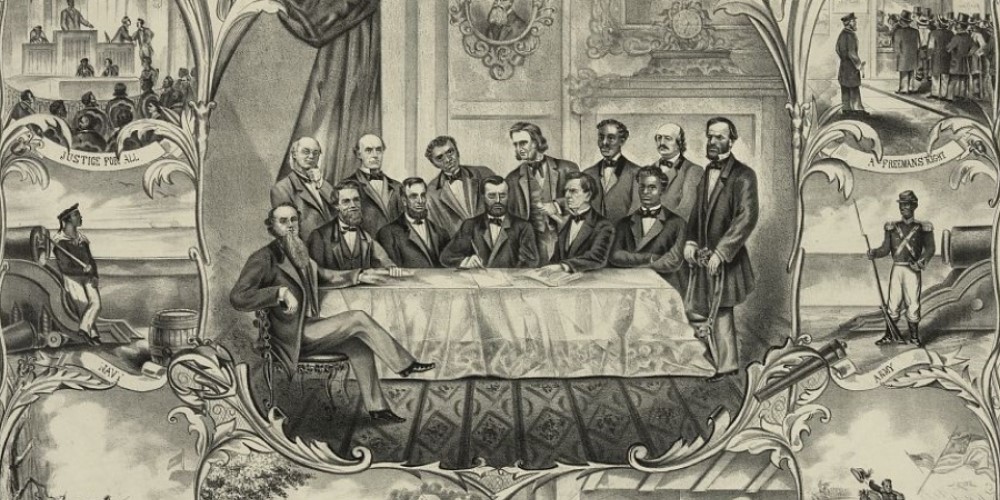Why I Am an Originalist—Properly Understood
I thank my good friend Frank Buckley, not only for favoring me with a rejoinder to my critique of his “We Can Do Better Than the Founders’ Constitution,” but for doing so in the familiar tutoiement, though by birth he is only an English Canadian. I shall follow suit and address him similarly as Frank.
The difference between us is captured this round, if less than clearly, in Frank’s very first paragraph when he writes that I am “an originalist who argues that the Constitution’s meaning is to be found in its text, while [he] say[s] that originalism is either wrong or self-defeating.” To give that construction its most charitable reading, originalism is “wrong,” apparently, not simply because, when facing vague or ambiguous text, an originalist judge must often go beyond the text to give it meaning, but because a “wise jurist” must sometimes find meaning that is contrary to the text. And originalism is “self-defeating” because it disables a judge from doing the “judicial tweaking” that “even a liberal constitution may stand in need of.”
Thus he gives an example from his native Canada: the decision of the Judicial Committee of the Privy Council, in Citizens Insurance Company v. Parsons (1881), to narrowly read the 1867 British North America (BNA) Act. Enacted to unite Canada by centralizing power in Ottawa, the Judicial Committee’s narrow reading instead shifted power to the provinces. Frank writes: “If you’re a federalist, as Roger and I are, I should have thought you’d be pleased with this.” To be clear, I am pleased as a policy matter, but if Frank’s account is correct, not as a legal matter.
Frank is not trying to hide behind his finger:
a glance at the text of the BNA Act, together with an understanding of what the Canadian Founders meant, will tell you that what matters is their original intent and not the words in the document. The text describes an absolute monarchy; the secret intent was a democracy.
Why is that what matters? If democracy was indeed the Canadian Founders’ intent, why did they keep it secret? Why did they write what they wrote and not what they meant? And how, much less on what ground, is a judge to discover such “secret” intent?
Unfortunately, Frank doesn’t address such questions. Instead, he goes on to argue that,
if the attraction of originalism turns on the political superiority of the Framers’ ideas over those found in recent Supreme Court decisions (a claim Roger suggests is an “additional reason to be an originalist”), then originalism is necessarily a political doctrine, and as such is self-defeating. Those on the Left who prefer the present constitutional regime and accuse the originalist of hypocrisy, of veiling his right-wing politics behind a screen, would be proven correct.
First, the attraction of originalism turns fundamentally on the attraction of the rule of law. By contrast, the attraction of any such law turns on its moral and practical merits. Second, as I actually wrote in our last round, an additional reason to be an originalist in America is because the Framers, especially the Reconstruction Framers, got it basically right, morally and practically, but that is not the main reason. In the Soviet Union, for example, that additional reason would count as a reason not to be a judge! When you distinguish those two very different reasons, there is no hypocrisy at all. Proper judging requires applying the law. Fortunate is the judge who has mainly good law to apply.
Yet Frank challenges my contention that our Constitution, thus amended, “comes straight out of the natural rights vision that the Declaration of Independence adumbrated.” Look at the 1787 Convention notes, he says, for “scores of delegates’ speeches which are wholly inconsistent with [that vision], from their detestation of democracy, to their acceptance of slavery, to their thoughts about human fallibility and intrinsic vileness.”
Were I a judge, I would not look to those notes, even though those views, slavery aside, are generally consistent with limited government. That brings us, however, to a question left open above: How should an originalist judge deal with vague or ambiguous text? In general, I submit, with constitutional text, an interpretation must be consistent with the document’s structure and background theory. Thus a reading of the Commerce Clause that would turn it into a general police power would fail that test—to say nothing of Federalist 42, a document that is at least probative by virtue of its influence with ratifiers.
Under no circumstances, however, may a judge properly reach a result that is contrary to clear text, which is what Frank seems to urge, as in his BNA example. In his all but inscrutable final paragraph, he writes that “the rule of law can’t be all politics.” But can it be politics at all and still be the rule of law? He asks finally whether certain “false starts enacted by a temporary Supreme Court majority might prudently be reversed without waiting for a politically impossible constitutional amendment.” Some might. But for that to be done right, we need a clear understanding of the proper touchstone. We’re fortunate that the Framers gave us such a standard. It falls to us to read it rightly.
